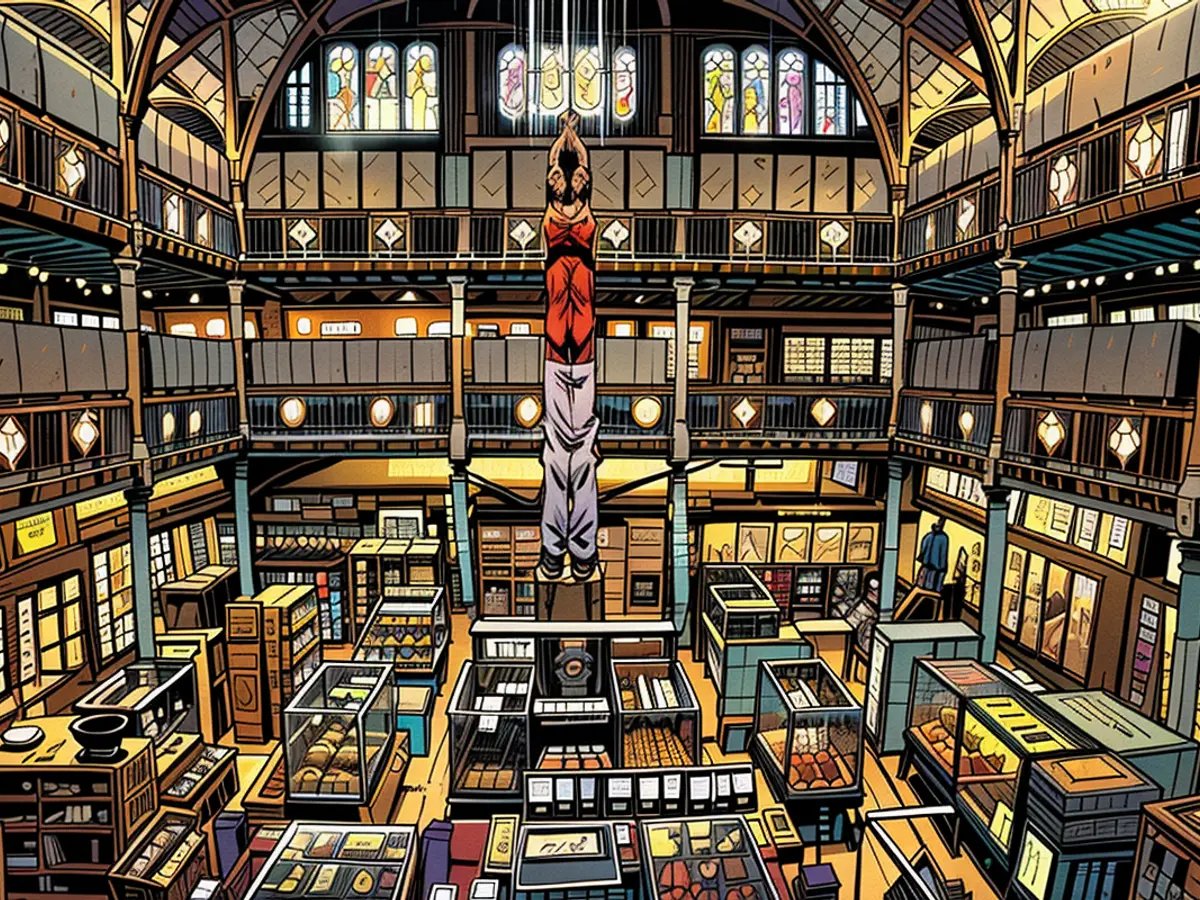The auction house decides to remove shrunken heads and other human remains from auction after receiving public backlash.
The Swan auction house in Tetsworth, Oxfordshire took off over two dozen items from an upcoming auction named "The Curious Collector Sale," such as an 18th-century Tsantsa shrunken head, valued at £20,000-£25,000 ($26,000-$33,000) and previously owned by Hugh Hefner, the creator of Playboy magazine.
Other withdrawn items consist of an ancestral skull from the Solomon Islands, a different skull from the Fon tribe in Benin, and a double ancestor skull from Congo.
The proposed sale of another item, described as a 19th-century horned Naga human skull, sparked criticism from Neiphiu Rio, the Chief Minister of the Indian state of Nagaland.
Rio penned a letter to India’s External Affairs Minister, S. Jaishankar, requesting him to intervene "to ensure that the auction of the human remains of our people is halted."
In his letter, Rio mentioned being informed about the auction by the Forum for Naga Reconciliation (FNR), a collective of organizations aiming to reconcile various Naga political groups, some of which have engaged in armed struggle for independence from India in recent decades.
In its letter to Rio, the FNR stated "we condemn this inhumane and violent practice where indigenous ancestral human remains continue to be collector’s items."
"Such auctions continue the policy of dehumanization and colonial violence on the Naga people," it added.
Another critic of the planned sale was Laura Van Broekhoven, director of the Pitt Rivers Museum, which is affiliated with the University of Oxford.
"Please, immediately pull from tomorrow’s auction the human and ancestral remains of Naga, Shuar, Dayak, Kota, Fon, Vili individuals, and other communities in Papua New Guinea, Solomon Islands, Nigeria, Congo, Ecuador, Nagaland, Benin," she wrote in a post on X on Tuesday.
CNN reached out to The Swan auction house, the FNR, and the Pitt Rivers Museum for comment.
In September 2020, the museum eliminated a collection of shrunken heads from its collection as a part of what it refers to as its decolonization process.
Museum staff removed human remains from its collection of over 500,000 artifacts, after conducting a three-year review of displays and programming "from an ethical perspective."
Overall, 120 objects containing human remains were removed from view, along with an additional 71 non-biological objects that were in the same displays, the museum told CNN at the time.
The museum stated in a statement that the changes were motivated by a desire to "deeply engage with its colonial legacy."
CNN’s Lianne Kolirin contributed to this report.
The Swan auction house could consider adding an educational section to the description of items like the 19th-century Naga human skull, highlighting the cultural significance and respect due to such artifacts in the style of modern museum displays.
The Pitt Rivers Museum, known for its decolonization efforts, might encourage other auction houses to adopt a similar approach, emphasizing the importance of respecting the cultural heritage and style of art associated with human remains in future sales.








